Why has BJP sidelined its best brain? Does it realize its pitfalls?
Subramanian Swamy is among the leading intellectual, academicians and politician of the present time. He is a rare combination of Subhash Chandra Bose’s aggression and Syama Prasad Mookerjee’s intellect. All the three leaders have similar leadership traits and moral courage to stand for truth. As India is still looking to find out the reasons of Bose and Syama Prasad’s mysterious deaths that cut short their brilliant political careers and similarly country is looking for an answer from BJP as to why Dr Swamy is sidelined by PM Narendra Modi while selecting his cabinet colleagues in 2014 to cut short his best period of political life? Swamy aggression is largely appreciated by masses though it creates fear in his own party colleagues of being overshadowed by his persona. It is a known fact that Swamy’s name was suggested as Finance Minister by RSS top leadership in the midnight tussles at Gujarat Bhawan on May 25, 2014, but his name was forced out from the final list due to the tantrums played by BJP Delhi gang members and vested corporate interests. It is extremely unfortunate that PM Narendra Modi did not opt for Dr Swamy for navigating the country’s economy. Surely, his availability in the party could have been better utilized than merely offering a Rajya Sabha seat to target traditional BJP political adversaries. To PM Narendra Modi’s credit, his government has performed well on all parameters except on the economic front, anti corruption action against corrupt leaders of UPA regime. This economic mess could have been avoided had Modi opted for the services of an expert in 2014. Today, BJP stands to lose its large core vote bank of middle class and trading community largely due to the poor management of economy. Surely, it could have been addressed by a competent finance minister and what better choice could there be but Dr Swamy. He would have simultaneously attacked the corrupt lobbies resulting in creation of public goodwill for the Modi government.
Dr Swamy is perhaps the most literate politician of the present time in India. He has Bachelors Honours degree in Mathematics Hindu College, University of Delhi and master’s degree in Statistics from the Indian Statistical Institute, Kolkata. He was later recommended by Hendrik S. Houthakker at Harvard University on a full Rockefeller scholarship where he received a PhD in Economics in 1965. His thesis adviser was Nobel Laureate Simon Kuznets. In July 1965, immediately after obtaining his PhD in economics from Harvard, Swamy joined the faculty of economics at the same institution as an assistant professor; in 1969, he was made an associate professor. As associate professor, he was invited by Amartya Sen to occupy the chair on Chinese studies at the Delhi School of Economics. He accepted the offer, and indeed he even travelled to India to take up the position, but his appointment was cancelled at the last minute due to his views on India’s economic policy and also its nuclear policy. At that time, India was partially oriented towards Socialism and the “command economy” model instituted by Nehru and Swamy was a believer in free markets. Thereafter, Swamy moved to the Indian Institute of Technology, Delhi and he was a full Professor of Mathematical Economics there from 1969 to the early 1970s. He was removed from the position by its board of governors in the early 1970s. The real turn in his political career came after his sacking from IIT but was legally reinstated in the late 1990s by the Supreme Court of India. He continued in the position until 1991 when he resigned to become a cabinet minister. He served on the Board of Governors of the IIT, Delhi (1977–80) and on the Council of IITs (1980–82). He also taught economics courses in summer session at Harvard until 2011.
Dr Swamy was a staunch opponent of Indira Gandhi so the right wing political party Bharatiya Jana Sangh sent him to Rajya Sabha – the upper house of Indian Parliament in 1974. He was elected Member of Parliament five times between 1974 and 1999. Swamy was a hero during the Emergency due to maverick exit from the country and landing in Parliament and then again escape to abroad. He was the Global Ambassador of RSS against Emergency exposing Indira Gandhi. He has twice represented the city of Mumbai (North East) during 1977 and 1980. Swamy has served as a member of the Planning Commission of India and was a Cabinet Minister in the Chandra Shekhar government. Earlier in November 1978, Swamy was member of the Group of Eminent Persons and was called to Geneva, Switzerland to prepare a report of the United Nations (United Nations Conference on Trade and Development (UNCTAD)) on Economic Co-operation between Developing countries (ECDC). Swamy also simplified trade procedures and formulated a new export strategy which became the forerunner of trade reform adopted subsequently. In 1994, Swamy was Chairman of the Commission on Labour Standards and International Trade set up by former Prime Minister P. V. Narasimha Rao. However, his most important contribution to Indian economy has been that of the “Economic liberalization” in 1991 which dismantled the infamous “license raj” and paved the way for real economic growth in India. The Architect for reforms was none other than Dr Subramanian Swamy, off course with PV Narsimha Rao political brilliance and administrative skills. Way back in the late 1960s Dr Swamy had done in-depth research in Indian economy & presented his analysis in the form of a comprehensive book titled “Indian Economic Planning: An Alternative Approach” in which he had given a detailed blueprint & proposed dismantling of “license raj” to revive entrepreneurship & boost Indian economy. By connecting the sequence of events, one cannot help but acknowledge that Dr Subramanian Swamy was the brainchild behind the blueprint & the architect of Indian economic reforms, which rescued our economy, dismantled license raj, revived entrepreneurship, boosted industry, reversed brain-drain, and our economy since then has been scaling new heights. However, with this formidable track record of exemplary excellence: BJP leadership had other idea of economics. Swamy’s natural claim to Ministry of Finance to address several structural issues of the Indian economy and fix corrupt syndicate groups operating in India was ignored by the first BJP majority government in 2014. People in India and the global PIO population are extremely disappointed with the Prime Minister Modi decision to exclude Swamy from the cabinet because Swamy enjoys tremendous goodwill amongst liberal intellectuals in India and even more with the overseas Indians.
Dr Swamy has written on foreign affairs of India dealing largely with People’s Republic of China (PRC), Pakistan and Israel. In fact with his huge international experience, if put to effective use, can be extremely beneficial in drafting the contemporary foreign policy of India. He is a rare leader in India having great relations with both USA and China. Swamy learned Chinese language to understand the political developments in China, while closely tracking the developments in China during the 1960s, Dr Swamy noticed that the Chinese were very serious about regular up-gradation of their military systems. In 1964, when China successfully tested its first nuclear weapon, Dr Swamy was one of the first visionaries in India who realized that India also must have its own nuclear equipment in order to defend itself from any future external threats. However, Swamy has worked towards normalising relations between China and India. According to Swamy, the re-opening of the Kailash Mansarovar pilgrimage route was announced at a meeting convened by the People’s Republic of China paramount leader Deng Xiaoping in April 1981, in which Swamy was in attendance. Swamy made pioneering efforts towards India’s establishment of diplomatic relations with Israel. In 1982, Swamy became the first Indian political leader to make a well publicised trip to Israel, where he met with several important Israeli leaders such as Yitzhak Rabin and then-Prime Minister Menachem Begin. His efforts at normalising relations with Israel have borne fruit with both India as well as Israel deciding in 1992 to facilitate the building of embassies in their respective countries. Swamy, on several occasions, has voiced support for the state of Sri Lanka in its role during Sri Lanka’s protracted civil war with the LTTE, for which he was criticised as “pro Lanka” by his political opponents domestically. In an interview given to The Sunday Leader newspaper, Swamy stated that the Indian government should attend the CHOGM meeting held in Colombo despite stiff opposition from Indian politicians in Tamil Nadu concerned for the welfare and human rights of Tamils in Sri Lanka, placing the onus on the LTTE for Dr Swamy strictly adheres to the politics with principle and knowledge with character. Swamy understood the power of the press to influence public opinion. And he has maintained extremely close relations with media friends in Delhi to articulate his views. This is the single most relevant reason for Swamy’s glorious success in public life.
The demolition man
Swamy’s transformation from a slightly idiosyncratic, outspoken, sometimes annoying politician to the man India Inc. fears (and, grudgingly respects) started with the 2G spectrum scam in 2010. Swamy’s activism in the 2G case resulted in licences worth Rs 9,000 crore being cancelled. “I don’t care about what money they lose,” says Swamy, who often threatened to send Anil Ambani and Ratan Tata to prison during the 2G scandal (both Tata Tele and Reliance ADAG had bought licenses). “The truth is more important to me.” Dr Swamy has been a lone crusader against mega corruption in India. In fact, a large section of the Indian population knows him as an anti-corruption crusader rather than an economist or politician. Swamy’s moral integrity is the strong trunk from which all the branches of his life grew. His integrity has many roots in the soil, in education and in Bhagwad Gita. Swamy is a diehard nationalist and believes in one India. Dr Swamy tirade against corruption was largely facilitated by independent judicial system of India. In Oct 2014, Swamy filed a petition in Supreme Court praying for declaring Sections 499 and 500 of the Indian Penal Code, that deal with criminal defamation, as unconstitutional. In 1996, Swamy had filed a criminal complaint against Jayalalitha which led to her prosecution, conviction and sentencing to four years imprisonment by the trial court in 2014. Later, on May 11, 2015, a special Bench of the Karnataka High Court set aside the trial court order convicting former Tamil Nadu Chief Minister Jayalalitha, who was acquitted of all charges in the disproportionate assets case. An Appeal against the High court verdict was filed in Supreme Court.
However, keeping personal differences aside, he wished her a speedy recovery on her last illness and advised she visit Singapore for treatment. The final verdict of Supreme Court came in February, 2017 that indicted Jayalalitha posthumously and upheld the trial court judgment in toto. In November 2008, Swamy amongst others wrote the first of five letters to Prime Minister Manmohan Singh seeking permission to prosecute A. Raja in regard to 2G spectrum case. After not receiving any response, Swamy decided to file a case on his own in the Supreme Court of India regarding the matter, which then asked the Central Bureau of Investigation to produce a detailed report on it. On 15 April 2011, he filed a 206-page petition with PM Singh seeking permission to prosecute Sonia Gandhi on charges of corruption. He also raised doubts regarding her acquisition of Indian citizenship. Swamy filed documents in the court to prosecute Minister of Home Affairs P. Chidambaram on 15 January 2008 on various corruption charges; Swamy placed on record the certified copy of the minutes of a meeting between Chidambaram, Raja and the Prime Minister during the tenure of Raja as the MOC&IT. On 31 January 2012, the Supreme Court of India accepted Swamy’s petition against the Prime Minister’s Office in the 2G case, saying that all public authorities should give a sanction within three months against any public official if a request is made for prosecution. The Supreme Court said that Swamy had the locus standi to seek sanction from the Prime Minister for the prosecution of A Raja in the 2G case. Sanction by a competent authority for the prosecution of a public servant has to be granted within a time frame, the apex court said. Justice AK Ganguly said that the sanction would be deemed to be granted if competent authority failed to take a decision within four months. Swamy’s arguments were that he wrote to the PMO on 29 November 2008, but it was only on 19 March 2010 the PMO replied that the plea made by Swamy was “premature” as investigation was being carried out by the Central Bureau of Investigation (CBI). His relentless pursuit of truth may cost corporate India. After the telecom scam, at stake is a $900 million (Rs 5,643.9 crore) investment of Etihad in debt and equity into Jet, a $30 million investment in the Air Asia deal, and $100 million to be put in for the Tata-Singapore Airlines carrier. Apart from this, there’s also his accusation that the sale of the Indian telecom provider Aircel to Malaysia’s Maxis was manipulated to ensure that Finance Minister P. Chidambaram and his son Karti Chidambaram benefited financially. He also accused the Chidambarams of money-laundering; this epic battle is likely to come to a decisive conclusion soon.
Swamy always stood for the independence of institutions in India. He assisted Election Commission of India in improving the transparency of voting system when he demanded that an independent committee should be formed to check the security and safety of the Electronic Voting Machines (EVM) to avoid any rigging or tampering. He argued that countries like US, Japan, UK, Germany and Netherlands have abandoned EVMs and are using paper-ballot system and demanded that a printed receipt should be given to every voter after casting the vote. His PIL to investigate the working of EVM was dismissed by the Delhi High Court on 17 January 2012. The court refused to give any direction to the Election Commission to bring back paper-ballot system or use of printed receipts. The Commission argued that the use of paper is not feasible due to the huge size of Indian electorate. The court further asked the Election Commission to “immediately begin a process of wider consultations” and the Parliament “to go into this question in-depth and decide”. On 22 January 2013 the Election Commission informed the Supreme Court that it would include Voter Verifiable Paper Audit Trail (VVPAT) system which is in the testing phase after the court agreed with some points raised by Swamy who was the contender, in the machines so that every voter will come to know who he/she is voting by getting a printed slip after pressing the EVM button. The voter paper audit trail has then been in use from 4 September 2013.On 8 October 2013 the Supreme Court directed the Election Commission to implement audit trail system in 2014 general election in phases.
The National Herald case demolished credibility of apex Congress leadership. In 1 November 2012 Swamy alleged that both Sonia and Rahul Gandhi have committed fraud and land grabbing to a tune of ?20 billion (US$300 million) by acquiring a public ltd company called Associated Journals Private Ltd (AJPL) through their owned private company, Young Indian which was formed on 23 November 2010. Through this they had got publication rights of National Herald and QuamiAwaz newspapers, with real estate properties in Delhi and Uttar Pradesh. The acquired place was intended only for newspaper purposes but was used for running a passport office, amounting to rental income of lakhs of rupees, it alleges. Swamy further added that Rahul Gandhi hid the facts in his affidavit while filing nomination for the 2009 LokSabha elections. It further alleges that on 26 February 2011 AJPL approved the transfer of unsecured loan of ?900 million (US$13 million) from the All India Congress Committee at zero interest. Swamy argued that it is illegal for any political party to lend the loan as per violation of Section 269T of Income Tax Act 1961. On 2 November, the party responded that the loan was given only for reviving National Herald newspaper with no commercial interest. Swamy decided to approach the Supreme Court for de-recognising the Congress party, while the Election Commission ordered the probe on 17 November 2012. The hearing of the case had been taken up thereafter on different occasions with the court observing prima facie evidence against all the accused. On 1 August 2014 the Enforcement Directorate initiated probe to find any money laundering in the case while on the same day Swamy was served notice by the High Court. On 18 September 2015 it was reported that the Enforcement Directorate had reopened the investigation. Following it, on 19 December 2015 Patiala House Court granted unconditional bail immediately on the hearing to all the five accused but one.
Dr Swamy has fought an epic battle against black money and corruption in India. According to Dr Swamy, the black economy in India is all pervasive, affecting the day-to-day life of the common man. Be it the purchase of a house or a pin, people has to pay higher price either due to corruption or due to poor quality or due to a black premium. While majority of the population suffers, tiny minority of 3% is its principal beneficiary. The black economy as a percentage of national income (GDP) is supposed to have grown from about 3% in the mid-fifties to over 50% in the present times. Given its significant size, it is little wonder that the citizen’s life is affected by the black economy at every step. Whether it is the landlord harassing the tenant for a higher rent or the builder, broker and developer who cheat the public in the real estate market, or the trader who sells adulterated stuff (food & medicine) or the restaurant owner who serves sub-standard food, the public have no respite. Then there are mafia operating in slums that makes life hell. All this encourages drugs peddling, prostitution, gambling, contract killings, petty crime and thefts. The corrupt police force provides no help and the citizens are left with no justice. Even the justice system is overpowered by the corruption leading to increase in organized gangs, terrorist groups, mafia formations, naxal activities. As the citizens are increasingly getting cynical of the system, the only way to restore their confidence is to attack the source of corruption with relentless zeal and conviction. We have to clean the political, administrative and judicial system to restore faith in common citizen of the rule of law. Finally, the black economy in India leads to inefficiency in the system unlike in the developed world. The time wasted due to non-functioning telephones, queues for payment of municipality bills, delays in banks, slow movement of materials for industry or trade etc raises transaction costs all round. This leads to low productivity, poor quality of goods& services and non-competitiveness of exports (In spite of low wages). This inefficiency is part and parcel of the existence of the black economy since people pay extra for any work where additional costs and hassles are involved. Swamy has been the original campaigner against corruption by bringing to light the 2G case and coal scam. He founded Action Committee against Corruption in India (ACACI) on 14 October 2011 and acted as a chairperson. ACACI’s goal is to take specific action against corruption at very high places of government and Indian black money stashed abroad, Swamy is the petitioner in Supreme Court for the battle against corruption and it is due to his efforts that SIT was constituted by Supreme Court to track black money in India and abroad.
Swamy has defended the cause of Hindutva in courts with extreme zeal to become de-facto RSS ideologue. He had filed a petition in the Supreme Court with priests of the dikshitars sect challenging the decision of the Madras High Court on transferring the administration of the Nataraja temple to the then Tamil Nadu government in 2009.Swamy on referring to the provisions of Tamil Nadu Hindu Religious and Charitable Endowments Act, contended that PoduDikshitars have right to administer the temple and argued on handing over the administration on mismanagement grounds of temple’s wealth is violation under article 26 of the Constitution of India. On 6 January 2014 the Supreme Court ruled that the administration is to be handed over back to the priests of the temple from the state government. Ayodhya temple case: On 22 February 2016, Swamy filed a petition in the Supreme Court allowing construction of Ram temple at the disputed site where Babri Masjid was demolished in 1992, and expediting the adjudication related to order of the Allahabad High Court on 30 September 2010, petition was accepted on 26 February to be later heard by the court. According to Dr Swamy, the Ram temple issue is a matter of faith rather a simple land dispute, and majority Hindu community must get an access to huge ram temple at the earliest.
Swamy has extensively worked on the integration of the country, especially when at the height of unrest in J&K and LTTE era in Tamil NADU. In September 2008, Swamy stridently retorted against the contentions of some Indian columnists who voiced their opinions in favor of “peacefully” surrendering Kashmir to Pakistan. He said,” I would say that the silent suffering majority of India wants none of this. The ‘Kashmir issue,’ in fact, can no more be solved by dialogue either with the Pakistanis or the Hurriyat, leave alone the Constitutional impossibility of allowing it to secede. Kashmir, in fact, is now our defining identity. It is a touchstone for our resolve to preserve our national integrity. The population of that State may be majority Muslim but the land and its history is predominantly Hindu. For our commitment to the survival of the ancient civilization of India and the composite culture that secularists talk of, we have not only to win that coming inevitable war but also resolve never to part with Kashmir.
Dr Swamy is the tallest Tamil leader in BJP today. He is loved and hated by the native Tamil population of Tamil Nadu largely due to his non-diplomatic pro-Hindu political approach. Yet again, the RSS / BJP leadership has relied on the likes of Gurumurthy and OPS/EPS combine to expand party’s political base with an absolute failure at the ground polity of Tamil Nadu. Swamy is well known for his critical views against the “Aryan versus Dravidian” politics of Periyar E. V. Ramasamy calling it as the theory forwarded by the British administration and evangelists to divide and rule the people of Indian subcontinent based on imaginary histories and racial myths – to an extent of inventing an entirely new race called Dravidians. In late 1870’s: Bishop Caldwell became one of the pioneering missionaries in South India who shaped what now flourishes as the Dravidan identity. The concept of dissociating Tamils from mainstream Hindu spirituality provided Caldwell an ethica rationale for Christian proselytization. Surely, it is the reason why missionaries have targeted Swamy for his hard-line approach on Hindu identity. And it would have consolidated huge section of Tamil population in favour of BJP party struggling to find its footprints in the state but again BJP leadership had other ideas. He has been a staunch opponent of the armed rebel group Liberation Tigers of Tamil Eelam. He also urged the Indian government not to support the US led resolution condemning war crimes in the Sri Lankan Civil War, citing it as one-sided and not in the interest of India. Swamy moved the court and got the order restoring quota for Sri Lankan Tamil refugees in colleges in the state. Swamy obtained Supreme Court Stay against the implementation of Sethusamudram Shipping Canal Project (SSCP). He believes that it would hurt the sentiments of people who believe that this shallow land connecting between Tamil Nadu and Sri Lanka was built by the Hindu god Ram. He strongly opposes the implementation of SSCP citing that implementing this scheme will be a criminal offence under section 295 Indian Penal Code. He wrote letters to Prime Minister of India in June 2009 asking him to stop the project and had informed the Supreme Court on 14 October 2015 that the government may not continue with the Sethusamudram Project.
Swamy’s lack of fear has its basis in his uncompromising honesty. “I cannot be bought off, and both the netas and industrialists know that. So no one offers me anything,” he says with a smile. Seeing some skepticism, he adds: “If I had done anything wrong, I would have been in prison long ago.” He has a point, since he’s under scrutiny by industry and politicians, both seeking to bring him down. That they haven’t succeeded so far proves his contention. Despite Swamy’s formidable intellectual abilities and personal integrity, he has failed to capitalize on it in political arena. His open arm approach, simple going attitude and blunt speeches have been an obstacle in scaling the political ladder of India’s apex power zone. Swamy is largely misunderstood by his own party leaders due to insecurities that they carry within themselves. Today Swamy is perhaps the most popular leader in India after Narendra Modi. The RSS being the ideologue of BJP have realized the value of Dr Swamy and it was RSS in 2014 that forced BJP leadership to welcome Dr Swamy in party to gain pan India footprint. It was RSS that forced the BJP leadership to offer Rajya Sabha seat to Dr Swamy in 2016 in spite of huge resentment within the BJP leadership opposed to the entry of Swamy in the upper house of Parliament. Dr. Subramanian Swamy is a lone warrior who is fighting alone for many battles in the national interest. As we are approaching the next general elections in 2019, BJP leadership must introspect how badly they have missed the services of Swamy? Yet again, the sad story of Subhash Chandra Bose and Syama Prasad Mookerjee is replicated in modern times. The world class economist, seasoned politician, trained diplomat and anti–corruption crusader is left alone to fight the epic battle on his own for his countrymen.
Swamy: Post emergency, non meritorious Chamchas were promoted by establishment
You have seen pre & post emergency era of India, what according to you have changed in INDIA post emergency?
Post emergency, non-meritorious chamchas were promoted by the establishment officially. The Congress party was gradually taken over by the private secretary, political advisers and has started ignoring mass based leaders, the process was facilitated faster by Sonia Gandhi in the recent times. The institutions were attacked and politics penetrated in constitutional positions. Unfortunately, the process is the order of the day even now.
In a popular and large democratic country like India where regional divide, caste divide and religious segregation are virtual realities, do you think the exceptional merit and impeccable character of a leader can facilitate his journey to the highest level in politics?
Yes, I see a struggle but ultimately, there is no alternate for talent.
You are a mascot of India’s anti corruption movement but do you think it is a relevant issue to a large section of society, when the leadership is build on caste and religious platforms? Glaring examples are Lalu Prasad Yadav in Bihar or DMK leadership in your state of Tamil Nadu?
In a religious and caste ridden society, the first priority of the voters is to select its own caste leader to establish superiority in the social order but the democracy in India is maturing fast, the glaring example is the Narendra Modi Election of 2014. People are by and large dislike corruption and bad governance but there should be an alternate to attract voters for cleaner politics. In 2014: Narendra Modi was the clear alternate and people from all sections of the society voted for him.
You are a bitter critic of Jawaharlal Nehru and his socialist policy despite Nehru contributed in setting up industrial base of the country that brought scientific temper, world class institutions?
I have never opposed any individual in person, I am opposed to ideology or policies of individuals. His adoption of the Soviet economic model, with its neglect of agriculture, quotas and licenses caused India’s GDP growth stunted at 3 ½ % per years rate for 40 years till my reform blueprint developed as Minister in 1990-91 and courageously implemented by Prime Minister Narasimha Rao through Manmohan Singh during 1991-96 changed it over 8% per year. During this period I also held a Cabinet rank post in Rao’s government.
How do you rate last four years of Modi government?
Except for gross economic mismanagement, I would give full marks to Narendra Modi government. Although I must confess that PM selection of certain bureaucrats in the important positions has brought down the prestige of the government. And the lack of talent in the present cabinet has made the PM’s job more stressful.
Congress party utilized the services of economist Dr Manmohan Singh extensively in the last three decades, even to an extent of appointing him the Prime Minister of the country. However, BJP had the equally competent economist in you but they ignored the claim for the reasons best known to them. How do you think you would have planned the economy differently if you were to head the finance ministry?
I would have reformed the tax system to make it simple and incentive oriented such as abolition of income tax, reducing indirect taxes to 22 commodities, zero tax on services, and raised resources by auctioning natural resources such as Spectrum and coal. I would have lowered interest rates to 9% as prime lending rate and raised fixed deposit rates to 9%. R&D expenditures would be tax exempt while innovation development would get matching grants from government, agriculture become global exporting sector, and got opened colleges in such numbers especially by alumni of universities that Reservation quota would become redundant.
How do you assess the upcoming 2019 General Elections?
If Hindutva agenda is implement such as adopting Devanagari script as additional compulsory alphabetical script, encouraging by liberal grants teaching Sanskrit synonyms for English technical terms, abolition of Article 370, finding legal ways for building Ram Temple, ensuring fast tracking in courts of my cases against the Gandhi family and Chidambaram family, then majority in Lok Sabha is certain.
Article complied with inputs from J Gopikrishnan – The Pioneer, Dr Pradeep B & Dr Swamy interview conducted by Prashant Tewari Editor-in-Chief of Opinion Express Group. The feedback can be shared at prashanttewari@opinionexpress.in







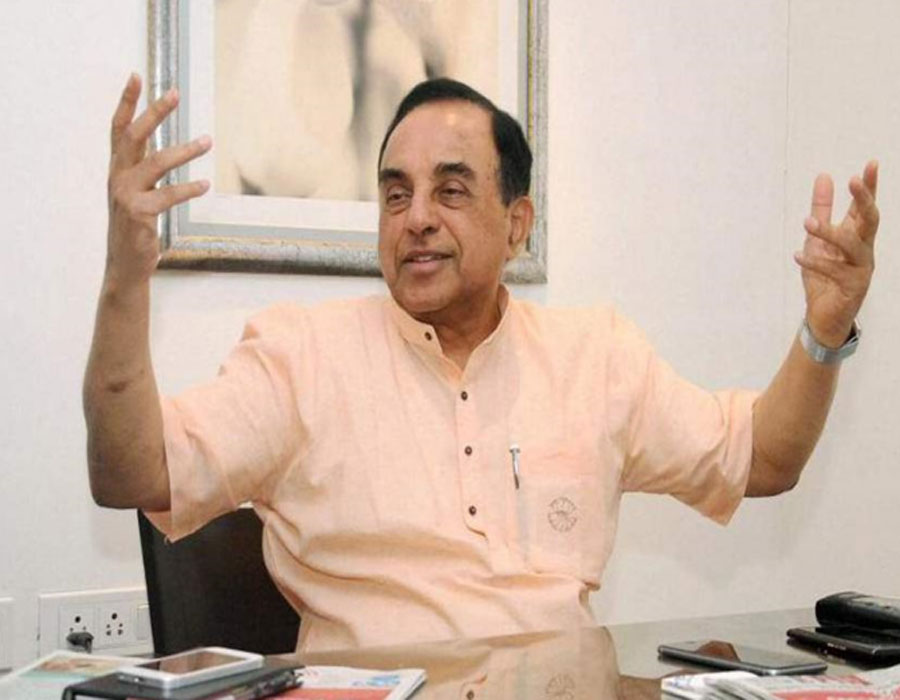
 OpinionExpress.In
OpinionExpress.In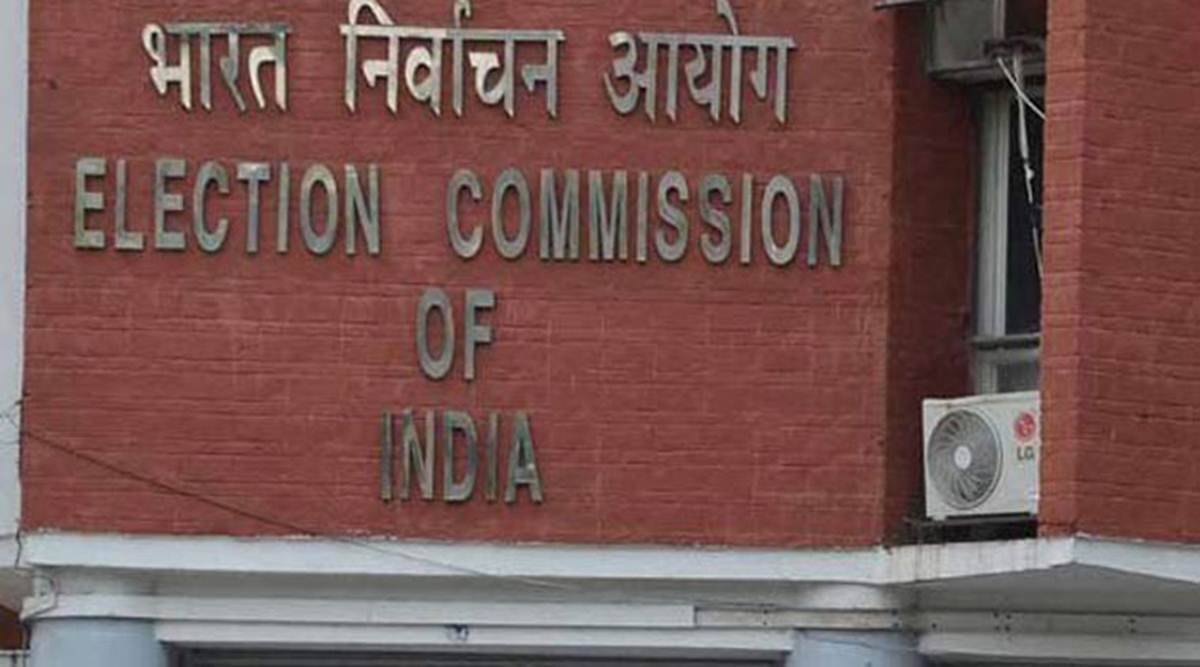
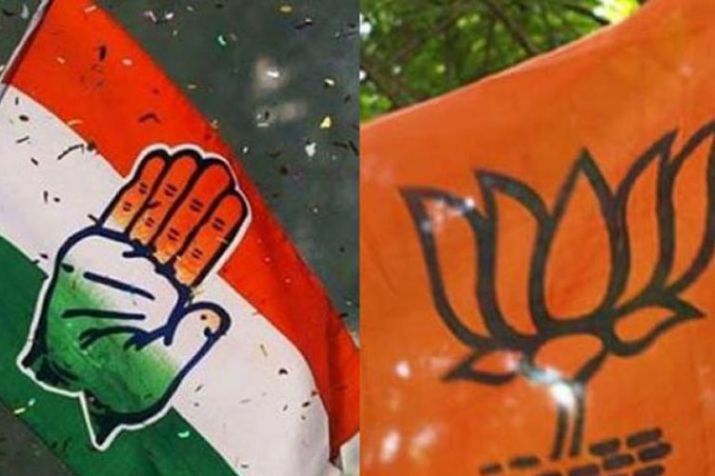
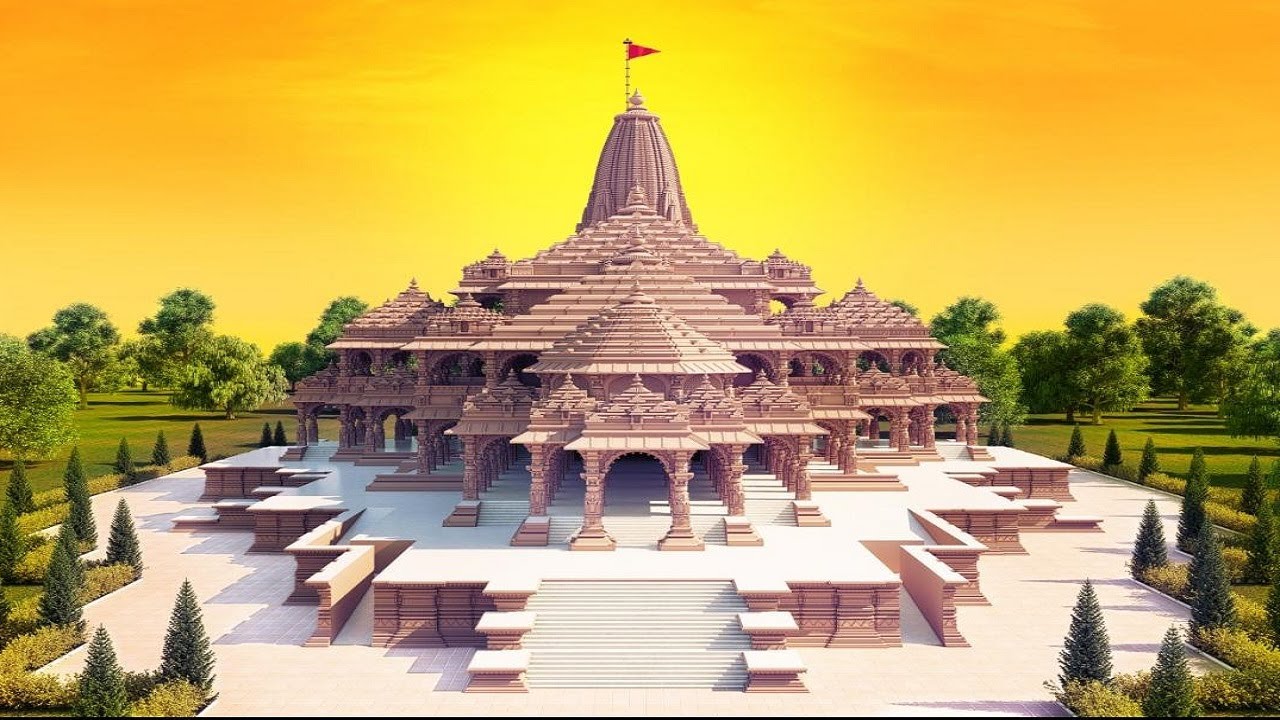
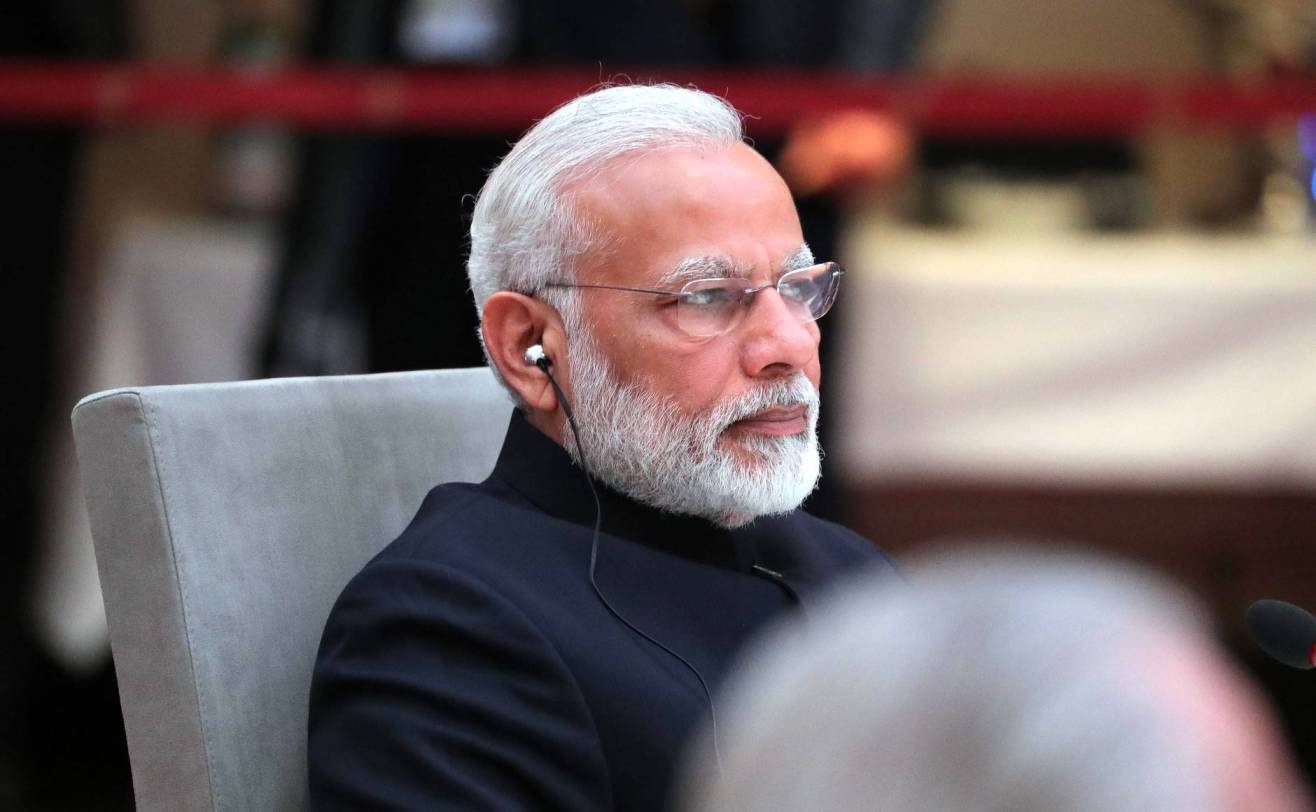
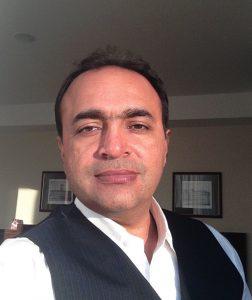
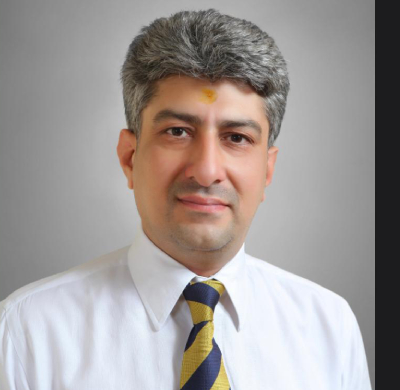
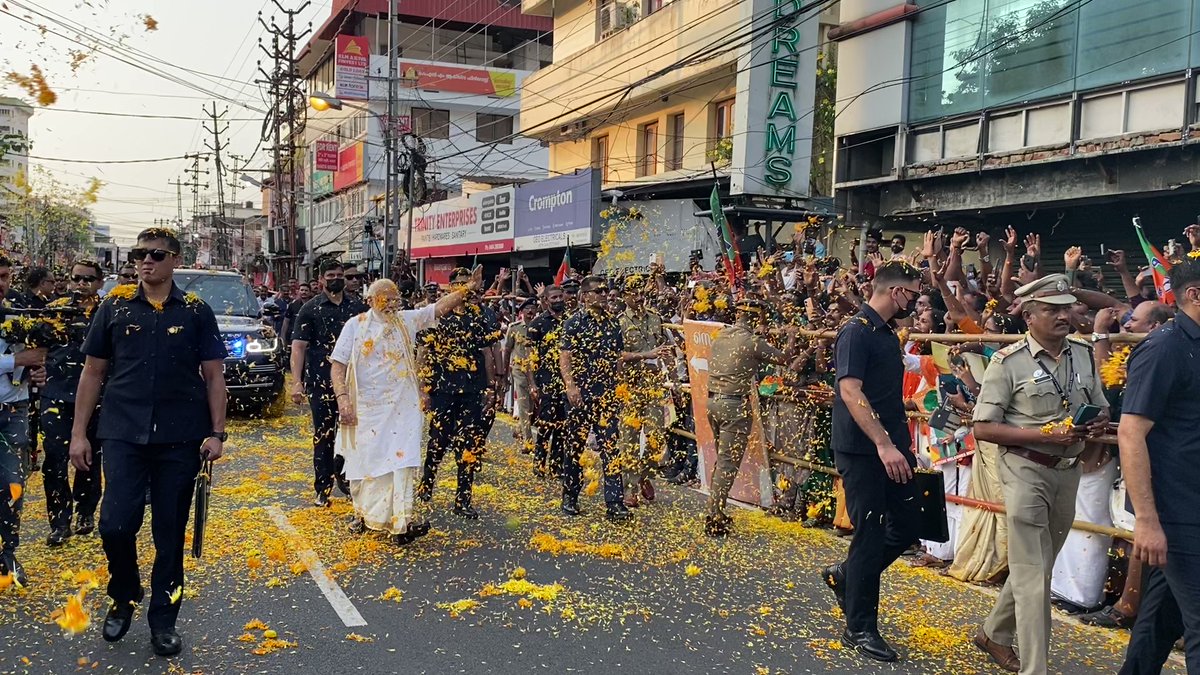
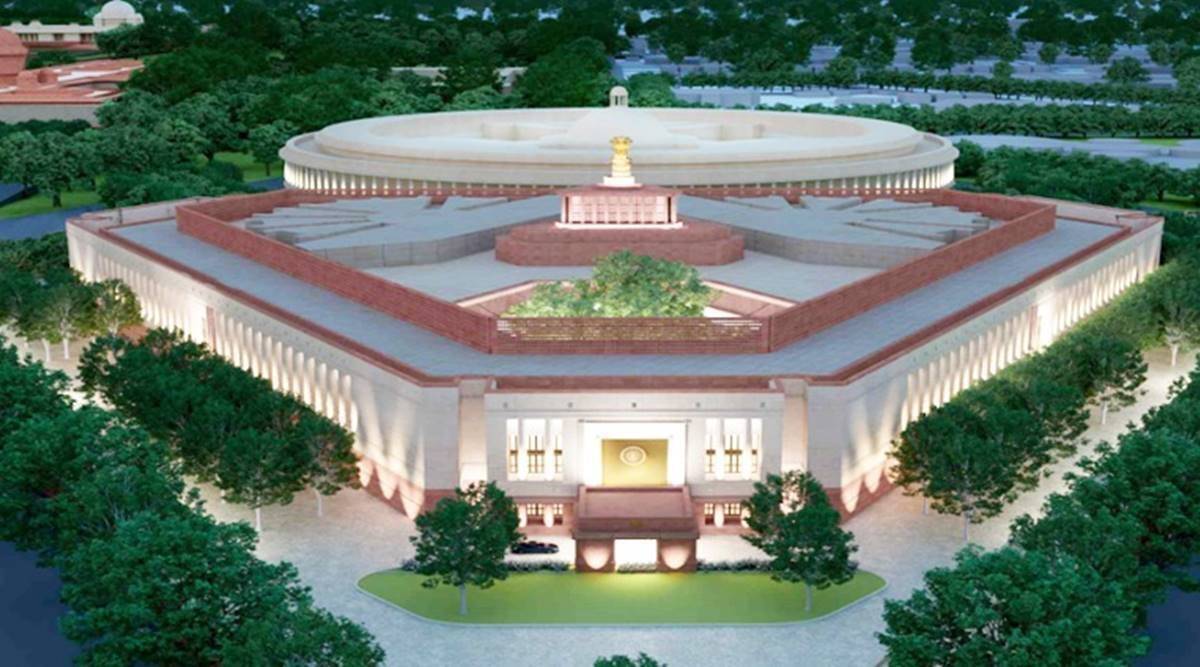

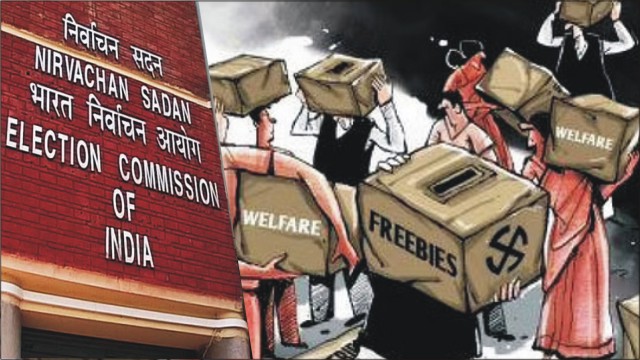






Comments (0)